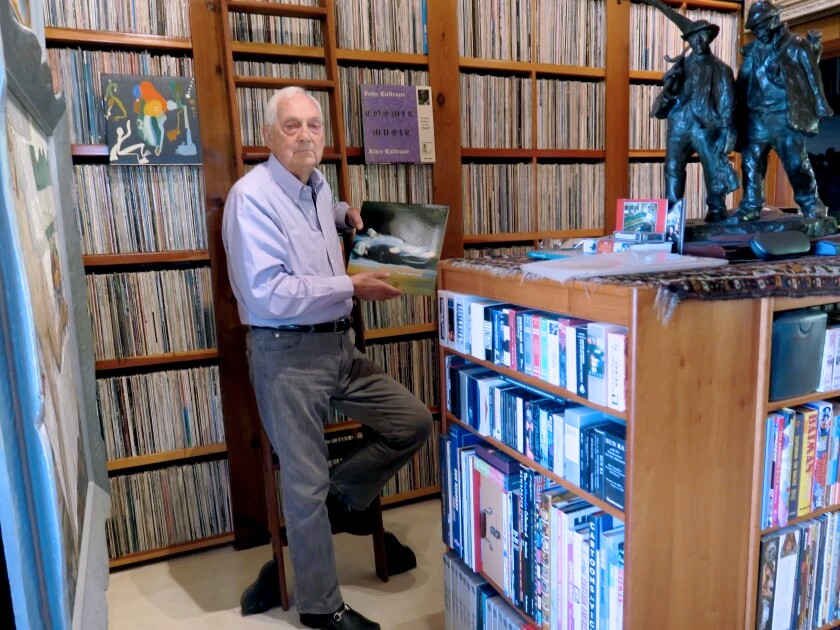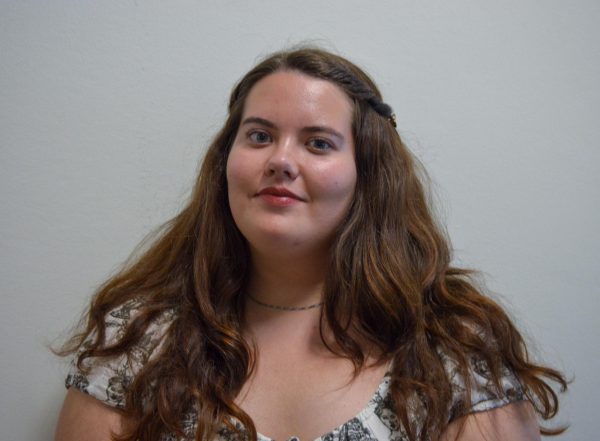The John Coltrane Memorial Black Music Archive consists of over 50,000 jazz, blues, gospel, and reggae albums and is valued at over $1 million. The collection was intended to be donated to the San Diego State Malcolm A. Love Library, but disagreements between SDSU and the donors have stalled the university’s acquisition of the collection.
Bram and Sandra Dijkstra, long-time Del Mar residents, are the owners of the collection which makes up the John Coltrane Memorial Black Music Archive. The gift was accepted in June 2020 by The Campanile Foundation, SDSU University Relations and Development (URAD) and the SDSU Library.
At the time, Patrick McCarthy was serving as Interim Dean of the Library and was one of the key players in accepting the gift.
“It [The John Coltrane Memorial Black Music Archive] will also be an integral part of our development of an unrivaled Social Justice collection and advances the university’s strategic goal to be a global leader in promoting and supporting diversity, equity, and inclusion,” McCarthy said in a statement published by the SDSU Alumni Foundation.
However, the university withdrew from the agreement to accept the collection in June 2021.
In an email sent to Bram and Sandra Dijkstra by Dean of the Library Scott Walters, library administrators told the Dijkstra’s the “core commitment to begin accepting the materials and to house them” was not currently possible.
According to the Dijkstras, SDSU administration asked the couple for funding to cover the expenses to properly house the collection in the Love Library. These expenses were not covered by the donors in the original agreement.
“There is nothing in the agreement that obliged us to provide cash at all,” Sandra Dijkstra said.
Dijkstra, who currently operates a literary agency, has ties to SDSU that go back all the way to the 1970s, where she taught in the university’s first women’s studies program.
The school went back and forth with the Dijkstras around three or four times, each time coming up with a reason as to why the university would no longer be able to house the collection.
Dijkstra claims she and her husband had continuously abided by the agreement between them and the university.
“We had not made any changes to the agreement, we were abiding by the agreement. They [SDSU] were the ones who made changes to the agreement,” Dijkstra said.
When contacted regarding the John Coltrane Memorial Black Music Archive, SDSU released the following:
“The SDSU Library was honored to accept Sandy and Bram Dijkstra’s offer in 2020 to bequeath their curated jazz collection to SDSU. The university remains happy to accept the collection under the terms of the agreement signed by the Dijkstras in 2020.
One year after agreeing to the terms of the signed agreement, the Dijkstras reached out to the university regarding collection-specific staffing and infrastructure they expected. These were not included in the signed agreement and the university’s library was not in a position to provide these high-cost requests.”
The donation was brought to the attention of the University Senate at their March 1 meeting this year, as senator Adisa A. Alkebulan drafted a resolution regarding the way in which SDSU admin handled the acceptance of this gift.
Alkebulan, who is the chair of the Department of Africana Studies, presented the resolution in the hopes that it would establish a precedence of a broader range of voices when making decisions surrounding culturally impactful donations.
“I had no choice but to bring the matter before the University Senate and raise the issues outlined in the resolution,” Alkebulan said. “Though not included in the resolution, there is no doubt that this sordid affair is rooted in the lack of respect and appreciation the library and university leadership has for the Africana community and our culture.”
Many faculty members were quick to point out that the exclusion of faculty, staff and student voice in this decision was hypocritical to the university’s five-year plan, in which one of the priorities is “equity and inclusion in everything we do.”
Dijkstra commented on the lack of shared governance between SDSU admin, faculty, staff and students when it came to decision making.
“It is an affront to SDSU students. Their mantra is ‘equity and inclusion in everything we do.’ How can they exclude students and faculty in that decision?” Dijkstra said.
Dijkstra also commented on the fact that three non-Black SDSU admin, President Adela de la Torre, Vice President of University Development Adrienne Vargas and Dean of the Library Scott Walter had made the decision to reject the gift of the John Coltrane Memorial Black Music Archive and did not consult with any Black resources or groups on campus.
“Three white people who were not faculty made decisions on Black music which resulted in a huge loss for the SDSU community,” Dijkstra said.
The resolution drafted by Alkebulan called on the university to “work with the University Library and Diversity Equity and Inclusion Committees” when making decisions regarding culturally significant donations.
Alkebulan said he hopes the SDSU administration will take serious consideration into adopting his resolution.
“I hope that shared governance be established in the consideration and deliberation of academic-related gifts by assuring faculty, staff and student voices in the form of expertise and senate committees are included,” Alkebulan said.
Bram and Sandra Dijkstra said they hope this resolution will finally allow for the acceptance of the John Coltrane Memorial Black Music Archive for the SDSU community to be able to access.
“The door is still open. The next John Coltrane could be sitting in one of your [SDSU’s] classrooms, and having access to the John Coltrane Memorial Black Music Archive could be what inspires them,” Dijkstra said.
Editors’ note: The original headline of this article said “SDSU declines donation of $1 million John Coltrane Black Music Archive.” We have modified the headline to provide more context and accuracy.









